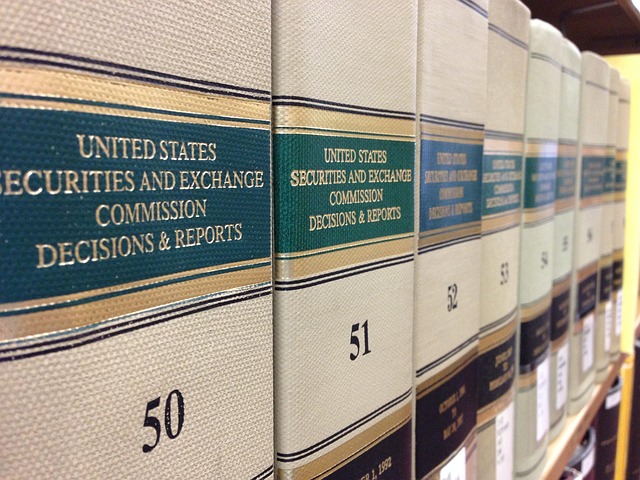Fraudulent financial practices like falsifying statements, insider trading, and money laundering exploit individuals and entities for monetary gain, with examples including embezzlement and Ponzi schemes. Combating these requires a strong legal framework that equips individuals and entities to invoke Legal Remedies for Contract Violations, such as monetary damages or specific performance, to hold parties accountable. Victims can consult specialized professionals, file lawsuits, and seek compensation while also deterring future fraud through robust internal controls, regular audits, employee training, and staying current with industry regulations. Regulatory bodies play a vital role by overseeing investigative processes and enforcing Legal Remedies for Contract Violations, including fines, injunctions, and criminal charges, to promote transparency and security.
Fraudulent financial practices pose a significant threat to individuals, businesses, and the stability of global economies. This article explores the intricate web of deceptive activities, offering a comprehensive guide to understanding, preventing, and addressing these illicit behaviors. We delve into definitions, examples, and the legal frameworks that combat contract violations, emphasizing the rights and responsibilities of all parties involved. Additionally, we examine recovery options for victims and the crucial role of regulatory bodies in curbing financial fraud through preventative measures.
- Understanding Fraudulent Financial Practices: Definitions and Examples
- Legal Frameworks and Contract Violations: Rights and Responsibilities
- Available Remedies for Victims: Recovery and Justice
- Preventative Measures and Regulatory Roles in Combating Fraud
Understanding Fraudulent Financial Practices: Definitions and Examples

Fraudulent financial practices encompass a range of illegal activities designed to manipulate and deceive individuals or institutions for monetary gain. These practices can take various forms, from falsifying financial statements to insider trading and money laundering. Understanding what constitutes fraudulent behavior is crucial in combating these issues and ensuring fair economic transactions.
Examples include embezzlement, where an individual misappropriates funds from their employer, and Ponzi schemes, which promise high returns to investors but instead use new investments to pay older investors. Legal remedies for contract violations play a significant role in addressing such practices. Across the country, cases of fraudulent financial activities have led to achieving extraordinary results, with convictions resulting in complete dismissal of all charges against perpetrators.
Legal Frameworks and Contract Violations: Rights and Responsibilities

Legal Frameworks and Contract Violations: Rights and Responsibilities
In the realm of fraudulent financial practices, understanding one’s rights and responsibilities under a robust legal framework is paramount. When contracts are violated, individuals and entities can invoke Legal Remedies for Contract Violations to seek justice and redress. These remedies range from monetary damages to specific performance, ensuring that parties hold each other accountable. The legal system plays a crucial role in upholding the integrity of financial agreements by providing a structured process for dispute resolution.
Through meticulous investigation and enforcement, entities like regulatory bodies and law enforcement agencies navigate all stages of the investigative and enforcement process. This includes gathering evidence, interviewing witnesses, and presenting cases in court. Ultimately, winning challenging defense verdicts or securing complete dismissal of all charges reinforces the importance of adhering to contractual obligations.
Available Remedies for Victims: Recovery and Justice

When victims of fraudulent financial practices are seeking justice and recovery, there are several legal remedies available to them. The first step is often to consult with a legal professional who specializes in financial crime or contract violations. These experts can guide individuals and corporate clients through the complex process of filing lawsuits against perpetrators. Depending on the jurisdiction, victims may be able to seek damages for losses incurred, including compensatory and punitive measures.
The goal of these legal remedies is not only to achieve extraordinary results in terms of financial compensation but also to send a strong message that such fraudulent activities will not be tolerated. Through diligent investigation and robust litigation strategies, justice can be served, and the respective business practices responsible for the fraud can be held accountable. This ensures that victims are not only reimbursed but also that similar incidents are prevented in the future, fostering a more transparent and ethical business environment.
Preventative Measures and Regulatory Roles in Combating Fraud

Preventative measures play a pivotal role in combating fraudulent financial practices. Companies should implement robust internal controls, regular audits, and employee training to deter potential fraudsters. Additionally, staying up-to-date with industry regulations and best practices can significantly reduce the risk of falling victim to scams. For instance, understanding complex contracts and ensuring their adherence to legal standards is essential, as many fraudulent schemes involve subtle contract violations that may go unnoticed initially.
Regulatory bodies across the country have a crucial role in maintaining financial integrity. They oversee all stages of the investigative and enforcement process, providing legal remedies for contract violations when needed. These measures include fines, injunctions, and even criminal charges against perpetrators. The involvement of regulatory authorities ensures that justice is served and helps create a deterrence for potential fraudsters, fostering a more transparent and secure financial environment through jury trials, where evidence is rigorously scrutinized.
In conclusion, fraudulent financial practices pose a significant challenge to individuals and institutions alike. By understanding the various forms these practices can take, familiarizing ourselves with relevant legal frameworks, and adopting preventative measures, we can fortify our defenses against fraud. The availability of legal remedies for contract violations offers hope and justice for victims, while regulatory bodies play a crucial role in combatting fraud through oversight and enforcement. Together, these steps are essential to fostering a more transparent and secure financial landscape.






